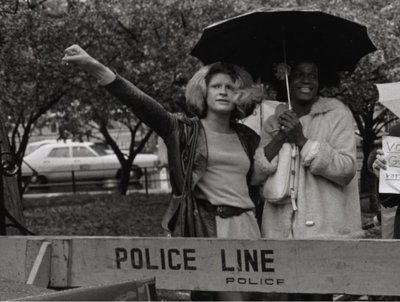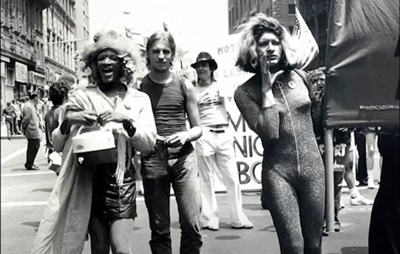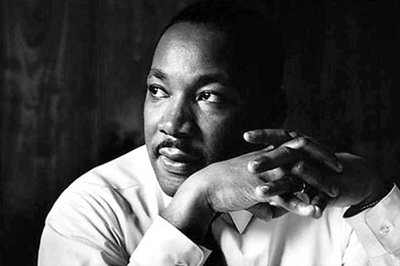Overview
In this lesson, students will learn about Black trans activist Marsha P. Johnson, a leader of the LGBTQ community in the 1950s to 1990s and an important figure during the Stonewall Uprising in 1969. Watch this video and answer questions to discuss Johnson, her legacy and the fight for LGBTQ rights.
Objectives
Students will be able to:
- Understand the life and legacy of Marsha P. Johnson and other LGBTQ activists
- Understand the history of LGBTQ rights and discrimination
- Learn vocabulary and topics relating to gender identity, gender expression and sexuality
Subjects
Social studies, civics, U.S. historyGrade Levels
Grades 9 – 12Supplemental Links
Standards
-
C3 Standards
D2.His.3.6-8. Use questions generated about individuals and groups to analyze why they, and the developments they shaped, are seen as historically significant.
D2.His.3.9-12. Use questions generated about individuals and groups to assess how the significance of their actions changes over time and is shaped by the historical context.
Background
Born in 1945, Marsha was born as Malcolm Michaels in Elizabeth, New Jersey. After high school, she moved to New York City, where she found a sense of community among other LGBTQ drag performers and sex workers. She changed her name to Marsha P. Johnson, with the “P” standing for “Pay it no mind.”
While she struggled with homelessness and mental illness, Johnson always made sure to help others in need. She co-founded a homeless shelter for LGBTQ youth named STAR (Street Transvestite Action Revolutionaries) along with fellow trans activist and friend Sylvia Rivera, and spoke out about the AIDS epidemic. Johnson also participated and lead the Stonewall Uprising on June 28, 1969, a series of protests after a violent police raid of the gay club Stonewall Inn. Johnson died in 1992, but her work and legacy lives on today.
Watch video:
https://ca.pbslearningmedia.org/resource/fp18.lgbtq.marsha.p.johnson/activism-marsha-p-johnson/
Vocabulary
Respectability politics : beliefs resting on how conformity to mainstream standards, appearances and behavior will protect a person of a marginalized group
Intersectionality: the complex, cumulative way in which the effects of multiple forms of discrimination (such as racism, sexism, and classism) combine, overlap, or intersect, especially in the experiences of marginalized individuals or groups (from Merriam-Webster dictionary)

Credit: National Park Service
Discussion questions
- Identify and describe at least two key contributions Marsha P. Johnson made to the LGBTQ and Trans Movement in the United States.
- What was the societal attitude towards LGBTQ and trans people during Marsha’s life? How did Marsha combat those attitudes and discrimination?
- Why is the Stonewall uprising an important event to the history of fighting for LGBTQ rights?
- How did Johnson’s intersectional identity as a Black trans woman impact her activism? How did her identity challenge the respectability politics at the time?
- Why is it so important to learn about and celebrate activists like Johnson today?
Group activity
Many other female, LGBTQ activists worked with Johnson and led the Stonewall uprising as well. Break the class into 3 groups and have them research the following women for 10 minutes:
- Sylvia Rivera
- Miss Major Griffin-Gracy
- Stormé DeLarverie
After 10 minutes, let each group share a brief biography of their person and their activism for LGBTQ rights. Some topics students can address are:
- Year of birth and death
- Where they lived and worked
- Their role and actions in the Stonewall uprising
- Organizations they started to help the LGBTQ community
- Other forms of activism (AIDs, homelessness, etc.)
For a direct resource about these three women, use this link by JCFS Chicago.
For more
PBS 2-Part Series: The LGBTQ Movement and Stonewall Riots
National Park Service: Stonewall National Monument with Marsha P. Johnson's biography
The Marsha P. Johnson Institute
Evelyn Chi, a rising sophomore at Amherst College and intern with NewsHour Classroom, wrote this lesson plan with News Hour's Victoria Pasquantonio.
Fill out this form to share your thoughts on today’s lesson.






